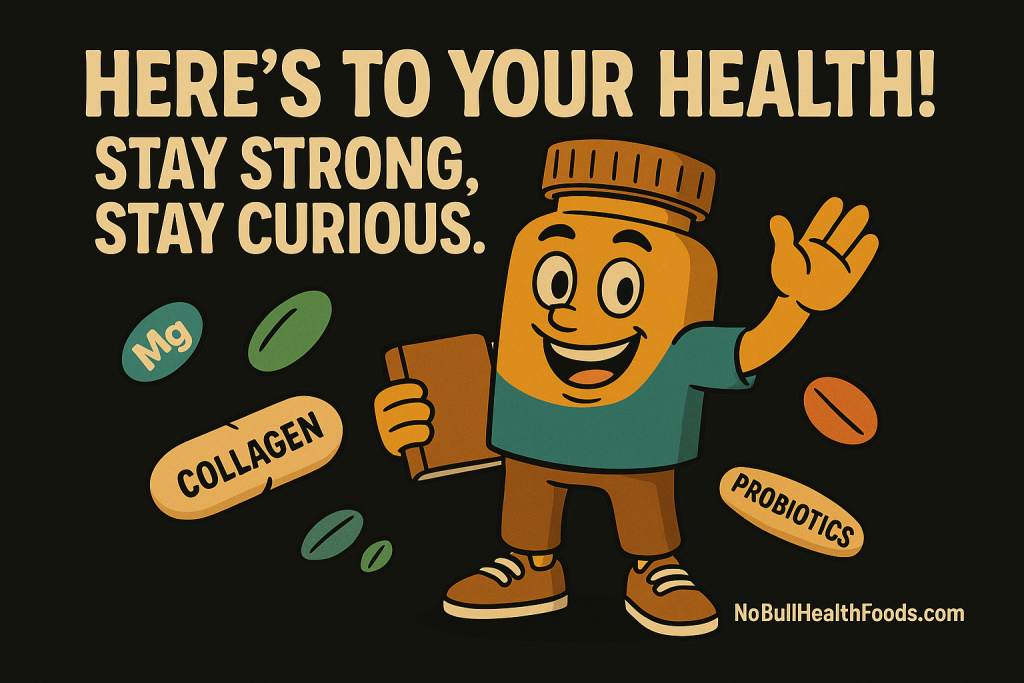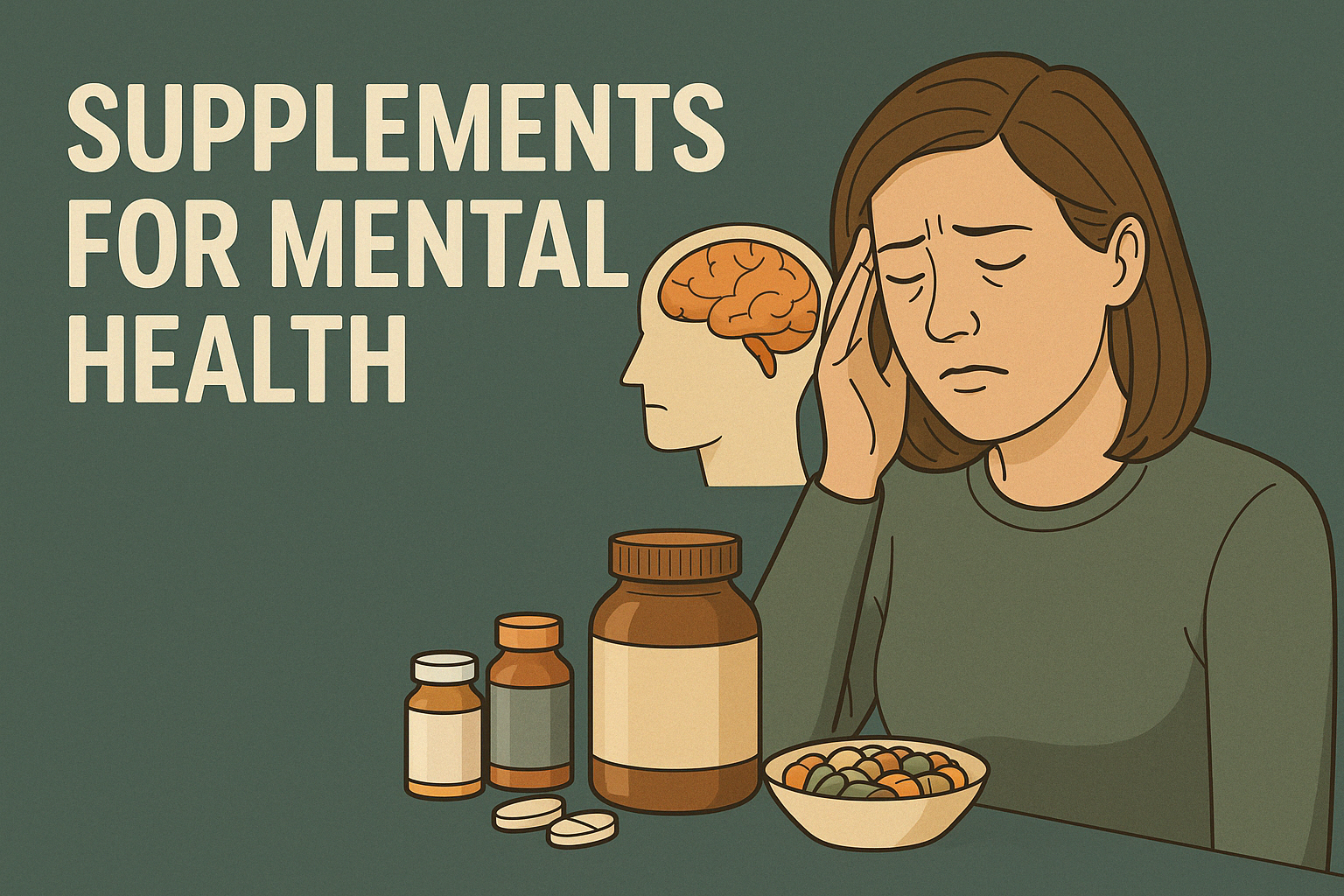Feeling low, anxious, or foggy? Sometimes the cause isn’t emotional at all — it could be a simple vitamin or mineral deficiency. Supplements for mental health are becoming more widely researched — and for good reason. While medication and therapy absolutely have their place, there’s another angle that’s often overlooked: nutritional support.
Certain vitamins, minerals, and amino acids play a huge role in how your brain functions, how your mood is regulated, and how resilient you feel day to day. This article breaks down the science-backed supplements for mental health that may help support your wellbeing — naturally.
🧠 What Does Nutrition Have to Do with Mental Health?
Your brain is an energy-hungry organ that relies on a steady supply of nutrients. When you’re low in key vitamins or minerals, you might experience:
- Brain fog
- Anxiety or restlessness
- Low mood or irritability
- Sleep issues
- Fatigue and poor concentration
Many of these symptoms overlap with those of depression or anxiety disorders — and that’s where supplements can make a difference.
🔬 Science-Backed Supplements for Mental Health
Here are some of the most well-researched supplements for mental health:
🧘 L-Theanine
Found in green tea, L-theanine helps increase alpha brain waves — promoting calm focus without sedation. It’s often used to reduce stress and anxiety.
💊 Omega-3 Fatty Acids (EPA & DHA)
Your brain is made largely of fat — and omega-3s are essential. EPA in particular has been shown in studies to reduce symptoms of depression.
💡 Magnesium
Sometimes called “nature’s chill pill,” magnesium supports over 300 bodily functions — including neurotransmitter regulation. Low magnesium levels have been linked to increased anxiety and mood swings.
🩸 Vitamin B12
Essential for energy, brain function, and nerve health. Deficiency can lead to fatigue, irritability, and even depressive symptoms — especially common in older adults.
🧬 Zinc
Supports brain signalling, neuroplasticity, and stress response. Zinc deficiency has been linked to both anxiety and depression.
🌿 Ashwagandha
An adaptogenic herb that helps regulate the stress hormone cortisol. Clinical studies show it may reduce symptoms of stress, fatigue, and low mood.
🌱 Probiotics and Gut Health
Emerging research links gut health to mental health. A balanced gut microbiome may influence mood and anxiety levels via the gut-brain axis. Consider adding a high-quality probiotic or fermented foods to your diet.
⚖️ A Word of Balance: Supplements Aren’t Magic
This isn’t about replacing your doctor or mental health support — it’s about adding another layer that could help your brain function better.
Think of it like this: You water a wilting plant — not because it’s broken, but because it needs support to thrive.
If your body is missing something, it can absolutely affect how you think and feel.
🧪 What Should You Do?
Don’t self-diagnose. If you’re struggling, talk to a health professional.
If you’re curious about trying supplements, start with one or two that match your symptoms.
Always choose high-quality supplements for mental health — and give them time to work (think 4–6 weeks).
🛌 Don’t Overlook Lifestyle Foundations
While supplements for mental health can be incredibly helpful, they work best alongside healthy habits. Prioritise regular sleep, move your body daily (even gentle walks), reduce sugar and alcohol, and stay connected with people who lift you up. These small changes, when paired with targeted supplements, can create lasting improvement in how you feel.
💬 Final Thoughts
Your mental health is complex, and no one solution fits all. But for many people, targeted supplements for mental health can provide the missing puzzle piece that medication or lifestyle changes alone don’t fix.
Start small. Stay consistent. And most of all — listen to your body.

👉 Like this article? Share it on Facebook 💬
➡️ Join our private Facebook group here! [Join Now]

Leave a Reply